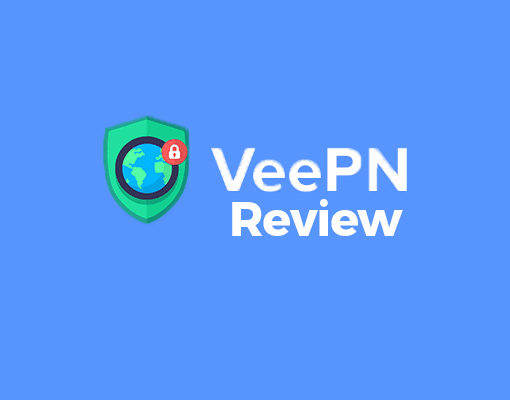You might’ve heard the term ‘VPN’ a lot in recent years. But what is it, exactly?
Even though it’s computer-centric, a VPN isn’t only for tech gurus. It’s a ‘virtual private network,’ and it’s a tool many have adopted to stay safe online. Even though modern firewalls and antivirus programs are pretty secure, few digital defense tools match a VPN’s astounding defense.
How a VPN Works
So, what is VPN all about? It’s about privacy, primarily—but the type of privacy that also protects computer users from viruses, data theft, targeted advertisements, etc. Even though a VPN can ‘block’ these threats similar to firewalls and antivirus programs—its main features are much more effective.
The Internet isn’t always safe: Hackers, snoopers, and even governments can access your digital identity if it’s unprotected. In some cases, they can also exploit it. VPNs protect users by avoiding data detection entirely. They circumnavigate online trackers, which is useful, but they can evade even complex data monitors—which is incredible.
Let’s cover the basics.
It’s a Subscription-Based Service
A VPN can seem intimidating at first glance. After all, it’s something designed to ‘hide’ people online. But don’t worry: Using a VPN isn’t illegal. It’s become about as popular as antivirus software. Sidestepping data protection is considered to be a good habit, these days—and it’s what a VPN does best.
A VPN is a program accessed through a subscription. It’s incredibly affordable, too, costing as little as two dollars per month. VPN companies tend to be leaders in the cybersecurity industry, and they constantly work to further enhance the digital defense tools they provide.
If you’re familiar with web hosting, you’re already familiar with subscription-based services.
It Works in the Background
Much like antivirus software, VPNs work quietly in the background of your PC’s daily processes. You can manually launch your VPN software, but most prefer its automated features: It has a useful auto-start setting, which means it’ll protect your computer from the minute it’s turned on.
It Lends You a Temporary IP Address
A VPN’s innovation comes in the form of remote servers. Your provider has plenty of them—and they’re located across many countries. When you access the Internet, your VPN redirects your IP address through one of these servers. It gives you a temporary IP address in return. This means you’re virtually ‘invisible’ when browsing, avoiding data snoops entirely.
It Bypasses Censorship
Because VPN servers are everywhere, you can choose a server in any country you wish. A lot of countries block certain news websites—and even popular multimedia websites. If you’re visiting an area that blocks online access to Netflix, for example, you can simply use a temporary IP address from your home country. The same approach also works on news websites—and even banking websites that restrict international access due to security reasons.
It Encrypts Your Data
Even though replacing an IP address is a top-tier security solution, VPNs take digital defense a step further: It encrypts your device’s data, making it impossible to decipher. Remember, though, that your data probably won’t be seen in the first place. But, if it is, whoever’s spying, it won’t be able to ascertain it. This encryption extends across website login information, histories, cookies, and more.
It’s Easy to Use
Because VPNs have become so popular, cybersecurity professionals have made them incredibly easy to use. Many VPNs practically run themselves, and they’re specifically designed for easy use. So, even if you aren’t particularly tech-savvy, you can set up your VPN in just a few clicks. Because a VPN is also a subscription service, you can also contact your provider for assistance.
It’s Great for Public Networks
Even though restaurants, stores, and libraries prioritize Internet safety, their network’s users aren’t always safe. Public Wi-Fi networks are easily exploited, and they’re a common hunting ground for cyber-thieves looking for personal information. Fortunately, you needn’t worry about these networks if you’re using a VPN: Even if your laptop automatically connects to the Internet, location to location, your VPN will safeguard it—every time.
It’s Also for Smartphones
VPNs have come a long way—and they’ve rolled out to mobile users, too. Most VPN subscriptions offer app-based versions of their software, and these applications offer the same level of protection as their desktop versions. This can boost your digital safety on public networks even more—keeping your smartphone secure for web browsing, social media posting, chatting, and more.
Online Safety and Today’s Tech Tools
You’d be hard-pressed to find a digital defense tool more effective than a VPN. Undoubtedly, antiviruses and firewalls are supreme security tools in their own right—but a VPN indeed lends itself to the same security goal while also being more adaptable. If you’ve considered getting a VPN of your own, the time to do so has never been better: While Cybersecurity tech is ever-evolving, the VPN leads the way.




One thought on “An Introduction to a VPN – What Is It and How You Can Benefit from It?”
To be honest, I was debating for some time whether I needed a VPN, but I think I was struggling so long to decide because I didn’t really know what it was and what it does exactly. After reading this article, I understand that having one is a great advantage these days, and is a must if you want to protect your data. I have already looked into some providers, and I’m thinking of going with Surfshark. I have a feeling it’s gonna turn out as a great decision.